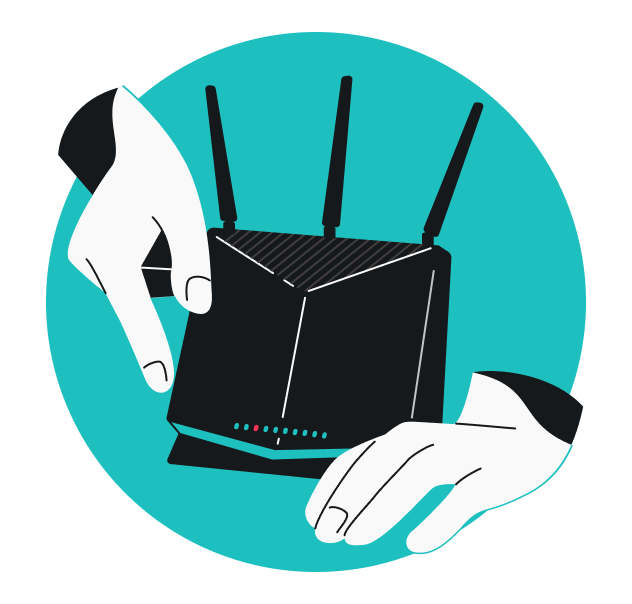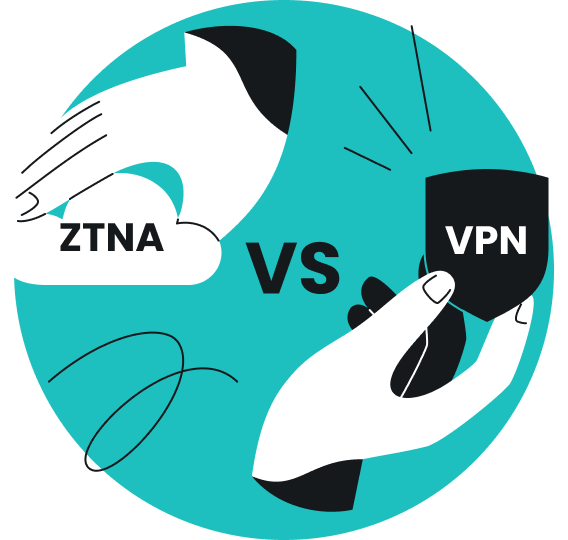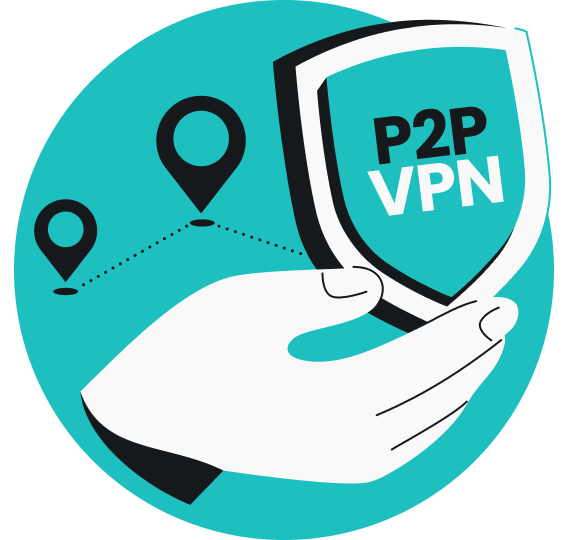PPTP (Point-to-Point Tunneling Protocol) has been around since the 1990s, making it one of the oldest VPN (Virtual Private Network) protocols still in use. But here’s the catch — while it’s fast and easy to set up, it’s also riddled with security vulnerabilities that make it a risky choice in the modern context.
In this article, we’ll break down how PPTP works, what its pros and cons are, and how it compares to more secure alternatives. By the end, you’ll understand why, despite its convenience, PPTP is a protocol you’ll want to avoid. Let’s dive in.
What is PPTP?
PPTP is one of the earliest VPN protocols, developed by Microsoft in the mid-1990s. It was designed to enable secure remote connections over the internet, allowing users to access private networks from anywhere.
At the time of its release, PPTP was a game-changer. It provided an easy way for businesses and individuals to establish encrypted connections without requiring specialized hardware. PPTP quickly became a standard for VPNs, built into most major operating systems, including Windows, macOS, and even some routers.
However, technology has advanced, and so have hacking techniques. PPTP’s security vulnerabilities, which were once considered minor, now represent substantial risks to data protection. Although it remains widely supported, PPTP is no longer considered a safe option for protecting sensitive data.
How PPTP works
At its core, PPTP creates a tunnel between your device and a remote VPN server, encrypting your internet traffic along the way. This allows users to browse securely, access private networks, and mask their IP addresses.
Here’s a simple breakdown of how a PPTP connection is established:
- You: your device (VPN client) initiates a secure connection to a VPN server, ensuring that your online activity remains private;
- PPTP connection: a secure tunnel is created, encrypting your data to protect it from potential threats or surveillance. This tunnel prevents outsiders from seeing your internet traffic;
- Router: your encrypted data travels through your home or office router before reaching the VPN server, making it unreadable to your ISP (Internet Service Provider);
- VPN server: the VPN server decrypts your data and forwards it to its intended destination on the internet. It also assigns you a new IP address, masking your real location;
- Internet: your requests reach the internet securely, allowing you to browse websites, access restricted content, and stay anonymous. Responses follow the same encrypted path back to your device.
PPTP’s approach to VPN tunneling is simple and lightweight, making it one of the fastest protocols available — but this speed comes at a cost. The encryption is weak, and MS-CHAPv2 (Microsoft Challenge Handshake Authentication Protocol version 2) authentication is vulnerable to attacks, making PPTP one of the least secure VPN options today.
What are the advantages and disadvantages of PPTP?
The PPTP VPN protocol is one of the oldest and simplest tunneling methods available. While it offers fast speeds and ease of use, it falls significantly short in security and reliability. Let’s explore the pros and cons in more detail:
Advantages of PPTP
The PPTP VPN protocol is a straightforward and efficient solution, making it a suitable option for users who prioritize speed over security. Here are its main benefits:
- Easy setup: PPTP is one of the simplest VPN protocols to configure, requiring minimal technical knowledge. It is built into most operating systems, so users don’t need third-party software to get started;
- Wide compatibility: since PPTP has been around for decades, it is supported by Windows, macOS, Linux, iOS, Android, and many routers, ensuring broad accessibility;
- Fast speeds: because its encryption is so basic, PPTP is one of the fastest VPN protocols around. This makes it a good choice for activities that don’t require strong security, such as streaming;
- Low system requirements: PPTP is lightweight and can run on older hardware and devices without slowing them down.
Disadvantages of PPTP
Despite its ease of use and speed, PPTP is outdated and insecure, making it a risky choice for privacy-focused users. Here are its main drawbacks:
- Weak encryption: PPTP only supports 128-bit encryption, which is far weaker than modern VPN standards. Hackers and governments can easily crack PPTP’s encryption, making it unreliable for privacy;
- Poor authentication: PPTP uses MS-CHAPv2 for authentication, which is riddled with security flaws. Hackers can intercept the data encrypted with PPTP in minutes;
- Easily blocked by firewalls: many firewalls can detect and block PPTP traffic because it uses GRE (Generic Routing Encapsulation) instead of a standard VPN port. This makes it unreliable in restrictive environments, such as workplaces or countries with internet censorship;
- No PFS (Perfect Forward Secrecy): unlike modern VPN protocols, PPTP does not support PFS, meaning that if a hacker cracks one session’s encryption, they can potentially decrypt past and future communications as well.
What is PPTP passthrough?
PPTP passthrough is a router feature designed to help PPTP VPN connections navigate network barriers. Essentially, it helps PPTP traffic pass through firewalls and NAT (Network Address Translation) devices that would normally block these connections.
How PPTP passthrough works
Because PPTP uses GRE to transport data, it often struggles to work with NAT-based routers. The passthrough feature ensures that GRE packets are correctly identified and forwarded, allowing PPTP connections to be established and maintained.
However, as PPTP has become outdated due to significant security vulnerabilities, PPTP passthrough has similarly lost its relevance. With modern VPN protocols like OpenVPN and WireGuard offering superior security and compatibility, network administrators and users are rapidly moving away from both PPTP and its associated passthrough features.
How does a PPTP connection compare to other protocols?
To understand why PPTP is now considered outdated and insecure, let’s compare it with more modern and widely used VPN protocols: WireGuard, OpenVPN, IKEv2, and L2TP.
PPTP vs. WireGuard
WireGuard is superior to PPTP. It provides state-of-the-art encryption, faster speeds, and better firewall penetration, making it one of the best modern VPN protocols.
| Feature | PPTP | WireGuard |
|---|---|---|
| Encryption strength | Weak (128-bit MPPE) | Strong (ChaCha20) |
| Speed | Fast | Faster |
| Security | Poor (easily compromised) | Excellent (modern cryptography) |
| Stability | Stable | Highly stable |
| Firewall resistance | Easily blocked | Easily blocked |
| Ease of setup | Easy | Very easy |
PPTP vs. OpenVPN
OpenVPN is a clear winner in terms of security and reliability. While it requires more setup than PPTP, it is widely used and trusted by security experts.
| Feature | PPTP | OpenVPN |
|---|---|---|
| Encryption strength | Weak (128-bit MPPE) | Strong (ChaCha20) |
| Speed | Fast | Slower but more efficient |
| Security | Poor (easily compromised) | Excellent |
| Stability | Unreliable on modern networks | Very stable |
| Firewall resistance | Easily blocked | Harder to detect (can use TCP/UDP ports) |
| Ease of setup | Requires third-party software | Requires third-party software |
PPTP vs. IKEv2
IKEv2 is also a much better option than PPTP, providing strong security and connection continuity even when switching between networks (such as Wi-Fi and mobile data).
| Feature | PPTP | IKEv2 |
|---|---|---|
| Encryption strength | Weak (128-bit MPPE) | Strong (ChaCha20) |
| Speed | Fast | Fast |
| Security | Poor (easily compromised) | Excellent |
| Stability | Unreliable on modern networks | Very stable |
| Firewall resistance | Easily blocked | Easily blocked |
| Ease of setup | Easy | Easy |
PPTP vs. L2TP
L2TP/IPsec is more secure than PPTP because it includes strong encryption, but that overhead also makes it slower. Still, it’s a better choice than PPTP for security-conscious users.
| Feature | PPTP | L2TP |
|---|---|---|
| Encryption strength | Weak (128-bit MPPE) | Strong (ChaCha20) |
| Speed | Fast | Slower due to double encapsulation |
| Security | Poor (easily compromised) | Secure (when using IPsec) |
| Stability | Unreliable on modern networks | More stable |
| Firewall resistance | Easily blocked | Can be blocked but is more adaptable |
| Ease of setup | Easy | Moderate |
Conclusion — do we recommend using PPTP?
PPTP is fundamentally insecure and should not be used for protection, despite being fast and easy to set up. The protocol’s outdated encryption, vulnerable authentication, and susceptibility to firewall blocks mean it is no longer a viable option for anyone concerned about online privacy and safety. If your VPN provider still offers PPTP as an option, it’s a red flag that they are not prioritizing data security.
FAQ
What is a PPTP VPN server?
A PPTP VPN server is a network server that uses PPTP to create a VPN connection. It allows users to connect remotely and encrypt their internet traffic, but due to its weak security, it is no longer recommended for protecting sensitive data.
What is PPTP in a router?
Many routers support PPTP VPN connections, allowing all devices on the network to connect to a VPN server without installing software on each. Some routers also include PPTP passthrough, which enables PPTP traffic to bypass firewall restrictions, though it does not improve the protocol’s weak security.
Why is PPTP not secure?
PPTP has outdated encryption and weak authentication methods that make it vulnerable to hacking. Security flaws in MS-CHAPv2 authentication allow attackers to crack passwords quickly, and government agencies and cybercriminals can easily decrypt PPTP traffic using widely known exploits.
Should I use the PPTP VPN protocol?
No, PPTP is not a secure VPN protocol, and it should only be used if security is not a concern. If you need a VPN for privacy, data protection, or secure remote access, you should opt for WireGuard, OpenVPN, or IKEv2 instead.
Which is better: OpenVPN or PPTP?
OpenVPN is significantly better than PPTP in terms of security, privacy, and reliability. While PPTP is faster, it is also easily compromised, whereas OpenVPN offers strong encryption, better firewall resistance, and broad compatibility, making it a much safer choice.







